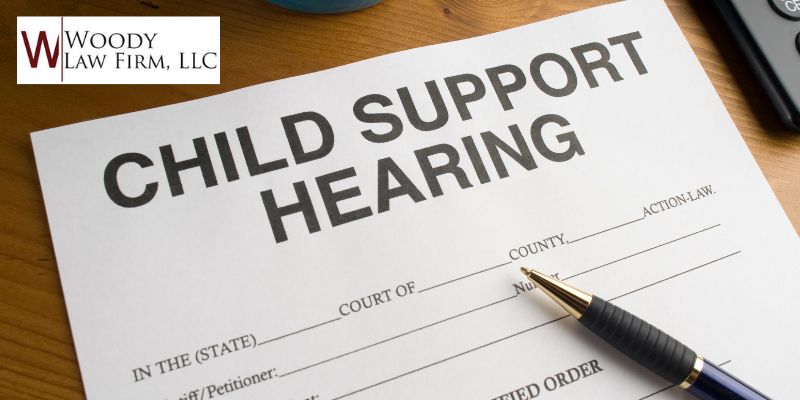Arapahoe County Legal Separation Attorney
Arapahoe County Legal Separation Lawyer
For some couples looking to separate in Colorado, divorce may not be a favorable option. Legal separation allows couples to have an alternative to divorce, whether for personal or financial reasons. For those wanting to learn more about their options, an experienced Arapahoe County legal separation attorney can explain what’s available to you.

Experienced Legal Separation Attorneys in Arapahoe County, Colorado
Kinnett & Cordes is a Denver-based law firm focused exclusively on family law and family law mediation. Because of that, we can provide our clients with the insights gained during our years of experience in similar cases. We pride ourselves on staying up to date on current legal separation laws and other family law legal trends in Colorado.
Our team understands that family law matters can be one of the most emotionally stressful events one can go through. We approach every case with the compassion it deserves, and our firm strives to offer customized care based on your unique needs and desires.
The Difference Between Legal Separation and Divorce
Of Arapahoe County’s 656,061 residents, 8.2 to 12.2% of them were divorced as of 2023. Legal separation operates similarly to divorce in Colorado. Both processes address the same issues:
- Dividing shared property, assets, and debts
- Creating a parenting plan for minor children, which includes a parenting schedule, decision-making responsibilities, and setting the amount of child support
The main difference is that divorce legally ends the marriage or civil union, while legal separation does not. Some couples may choose legal separation instead of divorce because it allows them to live apart while keeping the benefits of marriage.
For example, some couples have religious beliefs that forbid divorce, so legal separation lets them move on without violating their faith. Others may want to keep one spouse on the other’s health insurance plan.
There can also be tax benefits, since the IRS may still consider legally separated couples as married for filing purposes. In addition, legal separation preserves the right to inherit from a spouse. Some couples also hope for future reconciliation and prefer to keep the legal marriage intact in case they get back together.
Deciding whether to divorce or get legally separated is a deeply personal decision for couples. An Arapahoe County legal separation lawyer can keep you informed of the choices available to you throughout the entire process.
Colorado Legal Separation Process
Legal separation cases are often overseen at the Arapahoe County Justice Center, located at 7325 S. Potomac Street in Centennial. A district court can issue a legal separation once three specific conditions are met:
- One spouse must have lived in Colorado for at least 91 days before starting the case.
- The court must agree that the marriage is beyond repair and cannot be fixed.
- At least 91 days must have passed since the court officially gained authority over the other spouse. This can happen if the other spouse was properly served with legal paperwork, joined the petition voluntarily, or showed up in court.
As soon as a petition is filed and served on the other spouse, a temporary court order takes effect. This order prevents either spouse from doing things like selling property, changing insurance policies, or taking the children out of Colorado without permission. Both parties must follow this order until the court makes a final decision.
Separation Agreements
When a couple is going through a legal separation, they can choose to create a written separation agreement. This allows them to settle issues peacefully by deciding in writing:
- How they will divide their property
- Whether one spouse will pay support to the other
- How they will handle parenting responsibilities
The court will only reject the agreement if it finds it extremely unfair. If the court deems the agreement fair, it will usually include the terms in the final separation order and require both people to follow them.
However, courts always review the parenting and child support plan more closely to make sure they are in the best interests of the child. It’s important to hire a legal separation attorney to protect your rights as a spouse and parent during legal proceedings.
How Property Is Divided During a Legal Separation
During the process of legal separation, the court decides how to fairly divide the couple’s property. First, the court gives each person what’s clearly their own separate property. This includes the assets they owned before marriage or received as a gift or inheritance.
Then, it divides marital property, which generally includes anything either person earned or bought during the marriage. To decide what’s fair, the court looks at several factors, such as:
- How much each person contributed to earning or building the property, including taking care of the home or kids
- Each person’s financial situation, especially if one is keeping the family home for the sake of the children
- Whether either person’s separate property increased in value during the marriage or was used for family purposes
Child Custody and Support During Legal Separation
Colorado courts say that it’s usually most favorable for the child if both parents stay involved in the child’s life. Courts try to make sure children have frequent, meaningful contact with each parent unless there are safety concerns. As of 2023, 30% of Arapahoe County households had one or more children living there.
When deciding custody, the court always puts the child’s safety and well-being first. It will look at many factors to decide what’s right for the child, such as:
- How well the child gets along with each parent, their siblings, and others
- The child’s adjustment to home, school, and community
- Whether each parent encourages a positive relationship with the other parent
- How close the parents live to each other
- Each parent’s willingness to put the child’s needs before their own
The court also decides who gets to make important choices for the child, such as those involving education, healthcare, and religion. These decisions can be shared or given to just one parent. Judges must avoid letting personal bias affect their decisions.
Hire a Legal Separation Attorney
Since our founding, Kinnett & Cordes has received recognition from legal and judicial organizations across the state. The Supreme Court of Colorado has acknowledged our ongoing pro bono work. We have also received client satisfaction awards from the American Institute of Family Law Attorneys.
Our attorneys respect the hardships that family law can bring to our clients’ lives, and we can make your personal lives easier by taking over the legal side of your separation. Contact our office today to discuss your confidential case details.
Schedule A Consultation
Fields Marked With An “*” Are Required
"*" indicates required fields



